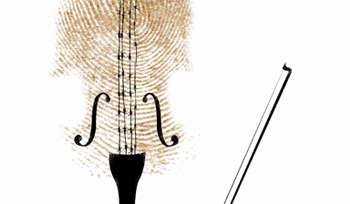Submitted by jhortolani on
GRENADA
Title:
Shevon Gay v. The Queen
Court:
Court of Appeal of Grenada
Citation:
Shevon Gay v. The Queen Criminal Appeal No. 8 of 1997 [Grenada]
Date:
12 January 1998
Instrument(s) Cited:
Evidence Act of Grenada, Section 52
Criminal Code
Case Summary:
Background:
Shevon Gay was found guilty of murder committed with the use of a knife when we was 15. He was sentenced to be detained at Her Majesty’s pleasure “in such place and under such conditions as the Governor General may direct”. The basis of the conviction relied on evidence provided by a witness that five days prior to the death of the victim, Mr Gay was in possession of a knife and when asked about the purpose of the knife, Mr Gay allegedly replied that it was for the victim who had been harassing him and that he planned to use the knife on the victim. Mr Gay appealed the conviction and sentence on grounds of erroneous evidence admissibility and jury instructions.
Issue and Resolution:
Evidence. Whether the trial judge erroneously admitted evidence of Gay’s alleged conversation prior to the offence, as it was prejudicial and its prejudicial effect would outweigh its probative value. The Court ruled that the conversation content was not evidence of bad character, and was also relevant and indicative of intent.
Intent. Whether the trial judge misdirected himself and the jury on the essential element of intent on a charge of murder. The Court assessed that there was no merit to appeal this point.
Provocation; Burden of Proof. Whether the trial judge misdirected the jury on the burden of proof when provocation was an issue. The Court determined that the trial judge’s assertion that the burden of proof was on the appellant was a clear misdirection and that appellant lost the opportunity of having his crime reduced to one of manslaughter as a result of the misdirection.
Intent to Kill; Standard of Proof. Whether the trial judge erred in law when he failed to adequately instruct the jury on the degree of proof on the essential elements of the charge of murder. The Court ruled that the conviction for murder was unsafe and unsatisfactory, quashing the murder conviction and substituting it for a manslaughter conviction.
Court reasoning:
The Court disagreed with the Director of Public Prosecutions who conceded that the burden of proof was misdirected, but argued that the case against the appellant was so strong that the jury would have inevitably come to the same conclusion had they been properly directed. The Court determined that it was uncertain what the verdict would have been had the jury been properly directed on the issue of provocation.
The Court determined that, although the jury was instructed that the Crown had to convince the jury beyond a reasonable doubt that appellant was guilty of the crime, and if the Crown failed to convince them then they had to acquit, the jury was not directed that they had to be satisfied beyond a reasonable doubt that the appellant intended to kill the deceased.
The Court admitted that it was “in a quandary” regarding the appropriate sentence. After the appellant's murder conviction, he had been detained and kept at a prison for “some time prior to his release”. The Court ordered that Mr Gay remain where he was until the next sitting of the Court in Grenada, at which time it would invite Mr Gay’s counsel and the Director of Public Prosecutions to address sentencing terms.
Notes:
For more information on the issue of inhuman sentencing of children, including a selection of case law, please see CRIN's 'Inhuman sentencing' campaign.
Link to Full Judgment:
http://www.worldcourts.com/ecsc/eng/decisions/1998.01.12_Gay_v_Queen.pdf.
This case summary is provided by the Child Rights International Network for educational and informational purposes only and should not be construed as legal advice.

